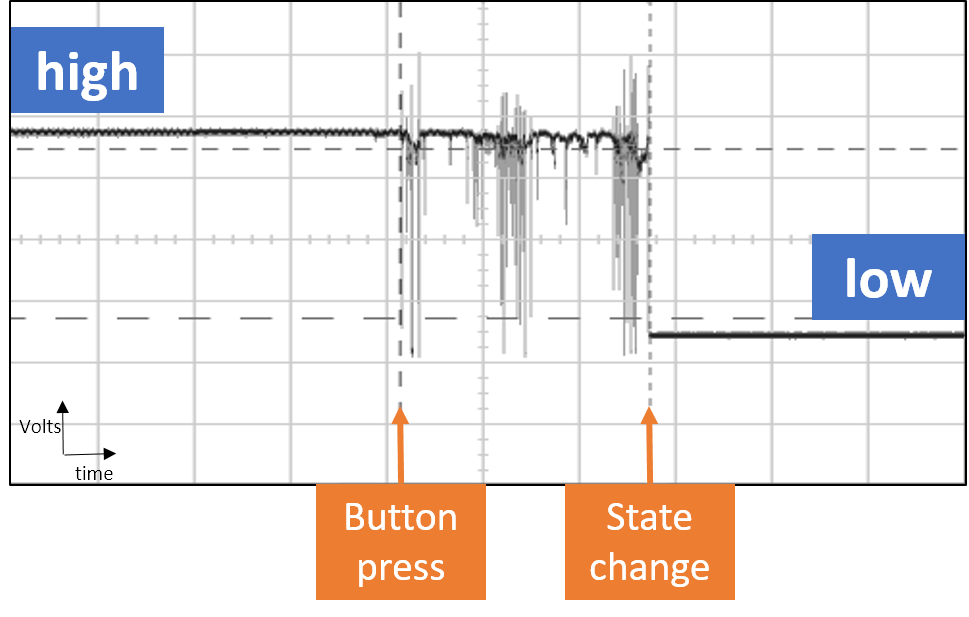Debouncing
Debouncing
Problem with Buttons

Problem with Buttons

- Buttons and switches are mechanical and they tend to fluctuate briefly when pressed
- Leads to circuit “bounce” before the value stabilizes
- The Photon 2 typically goes through
loop()multiple times before this stops so we can get false buttons presses or incorrect values
Solving Debouncing
- This works by only considering input if the signal has been stable (the same) for a fixed amount of time
- Everytime we see the signal is “bounce”, we reset our
millis()counter - Once we verify the signal has been stable for long enough, we then check for a button press
- We need to distinguish current button reading (which may be noisy) from current button state (which we have confirmed is a legitimate HIGH / LOW value)
Debouncing Algorithm
- If current button reading is not the same as last button state
- Reset debounce counter
- If signal has been stable long enough (currentTime-lastDebounce > debounceDelay)
- If current button reading is different from current button state
- Update button state (legitimate button press)
- Here you execute desired code for button presses
- If current button reading is different from current button state
- Update previous button state with the reading value
Debouncing Code: Global Variables
int prevReading = HIGH; // the last reading
int curButtonState; // the current VERIFIED state
long lastDebounceTime = 0; // the last time the output pin was toggled
long debounceDelay = 50; // the debounce time; increase if the output
Deboucing Code: Check if Bouncing Signal
void loop() {
int curReading = digitalRead(PIN_BUTTON); // check button read
unsigned long currentDebounceTime = millis();
if (curReading != prevReading) {
lastDebounceTime = millis();
}
Debouncing Code: Register Valid Button Press
void loop() {
...
if ((currentDebounceTime - lastDebounceTime) > debounceDelay) {
// we know we have stable signal
// see if input has changed
if (curReading != curButtonState) {
curButtonState = curReading;
// legit button press so update current button state
// FINALLY! here is your button code
// if want to execute when button pressed down ONLY
}
}
prevReading = curReading; // update for next loop
}
Debouncing Code: Full Example
void loop() {
int curReading = digitalRead(PIN_BUTTON); // check button read
unsigned long currentDebounceTime = millis();
if (curReading != prevReading) {
lastDebounceTime = millis();
}
// debounce delay often 50-200 ms
// we check for stable signal
if ((currentDebounceTime - lastDebounceTime) > debounceDelay) {
// we know we have stable signal
// see if input has changed
if (curReading != curButtonState) {
curButtonState = curReading;
// legit button press so update current button state
// FINALLY! here is your button code
// if want to execute when button pressed down ONLY
}
}
prevReading = curReading; // update for next loop
}